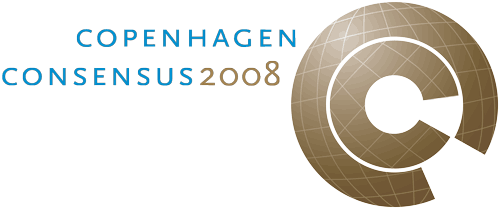Second Copenhagen Consensus: Subsidies and Trade Barriers Assessment, Anderson Winters
Assessment Paper
An Assessment Paper on Subsidies and Trade was prepared for the second Copenhagen Consensus by Kym Anderson and L. Alan Winters. The working paper used by the Expert Panel is available for download here, the finalized paper has been published in Global Crises, Global Solutions: Costs and Benefits by Cambridge University Press.
Short Summary
Despite considerable liberalization in recent decades, remaining barriers to trade and migration have negative impacts which particularly affect the world's poorest people. By far the best hope is a successful conclusion to the Doha round, which could boost growth in developing countries by 1.4% or more annually and indirectly help tackle many of the other challenges.
The net economic and social benefits of reducing most government subsidies and opening economies to trade are enormous relative to the costs of adjustment to such policy reform. While barriers to trade in most goods and some services including capital flows have been reduced considerably over the past two decades, many remain.
Such policies harm most the economies imposing them, but the worst of the merchandise barriers (in agriculture and textiles) are particularly harmful to the world’s poorest people, as are barriers to worker migration across borders. Addressing this challenge would therefore also assist in meeting several of the other challenges identified in this project including malnutrition, disease, poor education and air pollution.
This paper focuses on how costly those anti-poor trade policies are, and examines possible strategies to reduce remaining distortions. Three opportunities in particular are addressed.
The most beneficial prospect is the Doha Development Agenda of the World Trade Organization (WTO). If that proves to be too difficult politically to bring to a conclusion in the near future, the other two prospects considered are sub-global preferential reforms such as the Free Trade Area of the Americas (FTAA) initiative, and the freeing up the international movement of workers.

